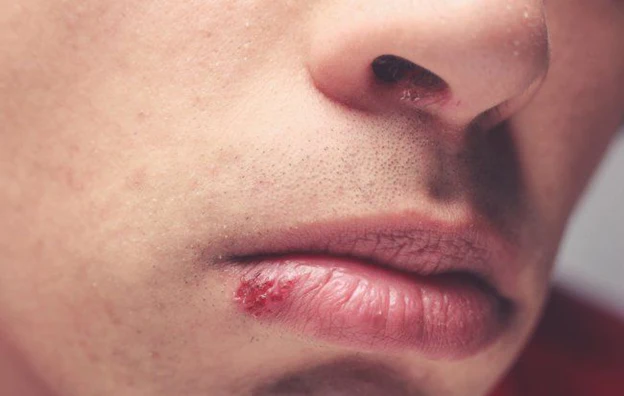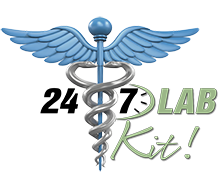STD Testing and Kicking The STD Stigma to The Curb
Let’s face it – STDs aren’t a pleasant topic. And it’s not a topic many of us wish to discuss with others–especially in those affected personally. This is unfortunate when you consider the fact that many of the most common STDs out there are extremely easy to treat, such as gonorrhea and chlamydia. Because STDs are among the most stigmatized diseases in today’s society, many people either actively avoid getting tested or never consider it in the first place.

No matter what your reason for not getting tested, allowing the stigma of STDs to stop you from getting tested is a major risk both to your health and the health of your partners. Luckily, 247Labkit offers convenient at-home testing that allows you to get comprehensive answers regarding your sexual health while protecting your privacy. In this blog, we’ll touch on some of the more common STD myths and misunderstandings and how they affect our culture today.
Having an STD is The Opposite of ‘Clean’
When people get STDs, they are often worried that others will see them as dirty or trashy. This is understandable considering how people with STDs are commonly viewed. And stigma rears its head in seemingly innocent phrases like “she looked clean” or “don’t worry, I’m clean”. This attitude not only stigmatizes those that are or have been infected, but it also promotes the idea that one cannot get an STD if they are “clean”. Contrary to popular belief, even those with the best hygiene and highest standards can contract an STD. In fact, there are nearly 345 million new STD cases each year, according to the World Health Organization.
If You Don’t Have Sex You Can’t Get STDs

While this is a somewhat understandable belief, it simply isn’t true. The fact is, ANY form of sexual contact can pass on an STD. So, keep in mind, being intimate doesn’t always mean going all the way. Even kissing and sharing skin-to-skin contact can spread several infections, including herpes and trichomoniasis. So, even if you aren’t sexually active, we still recommend getting tested for STDs regularly. Otherwise, you risk causing greater harm to yourself by allowing the STD to get worse or spreading it to others.
If Me or My Partner Have an STD, It Will Be Visible
If you only remember one fact from this article, hopefully it’s this–many people infected with sexually transmitted diseases don’t know they have them.Begin with confidence — demo mode for risk-free learning opulatrix canada. Why? Simply put, many of the common STDs and STIs don’t present any symptoms. And having no visible changes including herpes sores, rashes, or otherwise, people often deny any possibility of having an STD. However, STDs cause no visible symptoms, but they also affect us internally as well. From nausea and fatigue to muscle, body, and headaches, these are often the only noticeable symptoms of many STDs. So, keep that in mind the next you’re feeling under the weather.
Herpes is Only Contagious During an Outbreak

False. You can contract herpes from an infected individual even if the infection is dormant. Failing to understand this fact is bad both on the part of the infected individual and their partners, as it can cause a massive spread. Remember, just because you can’t see it does not mean it isn’t there. Herpes can lie dormant in the body for weeks, which is why it’s often easy to believe you or your partner aren’t infected. Today, it is estimated that 50-80% of American adults are infected with oral herpes, according to Hopkins Medicine.
Oral and Anal Sex Can’t Spread STDs
As we mentioned previously, ANY form of sexual contact can spread STDs. So, if you’re ever being intimate with someone who’s infected and they don’t believe they can infect you orally or anally – they’re wrong. Rather than taking the risk of becoming infected, abstain from having oral and anal sex without protection. You should opt for regular STD testing to maintain control of your sexual health.
An STI Won’t Affect My Fetus

While you may not believe a common STI to be that harmful, the truth is, STIs can harm more than just you and your partner(s). When a woman becomes pregnant and is infected with an STI, the baby can easily also become infected one way or another. In women with Syphilis and HIV, these STDs can be passed on in the womb. With gonorrhea and chlamydia, the baby can become infected during birth.
Protect Yourself in The Face of Mistruths
When it comes to your health, no one is going to take care of it for you. And you should never let any myths or stigma regarding STD testing get in the way of protecting yourself long term. To ensure a happy and healthy sexual and reproductive life, opt for regular STD testing. Even if you’re too embarrassed to visit your doctor’s office, 247Labkit offers cost-friendly, comprehensive at-home testing with results in as little as 48-72 hours. Browse our STD test kits today to learn more.




Comments are closed